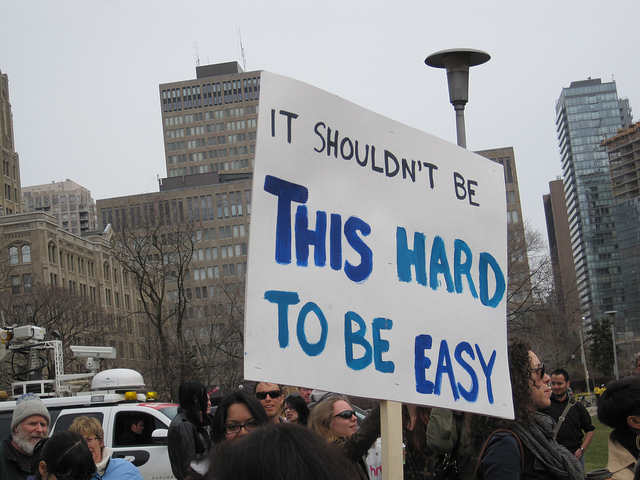Quickies
Quickies: What makes a slut, charity science, and assumptions in physics

- What makes a slut? The only rule, it seems, is being female – “For those who haven’t had the pleasure of being called promiscuous, it may be hard to understand just how profound an impact it can have. Women’s value and morality are closely – though wrongly – tied to their sexuality. So “slut” (or any of its variations) is an accusation with power behind it.”
- A skeptic’s guide to charity – “Charity skepticism is a good thing. We should be cautious about where we give because some aid does no good and some aid can even harm the very people we are trying to help.” From nowoo.
- The mistaken assumptions that changed physics history – “Last month, Avi Loeb, an astrophysicist at Harvard, published an essay on how mistaken assumptions have delayed the progress of astronomy. In the same spirit, I wanted to find out how the course of physics has been influenced by assumptions, acknowledged or otherwise.”
- 5 terrible secrets big drug companies don’t want you to know – “Big Pharma isn’t a modern-day Legion of Doom. They’re businesses focused on making money, just like every other company out there … which isn’t to say they aren’t capable of evil. They totally are. It’s just that their evil usually involves less illegal genetic experiments and more down-to-earth dick moves.” From Criticaldragon1177.





Charities are bad because we say charities are bad.
GiveWell is good because we say GiveWell is good.
Why does this logic smack of religious indoctrination to me?
I don’t doubt that some charities are shit (I won’t ever give to Susan G. Komen For the Cure for example) but how do we know that GiveWell is the answer? Who watches the watchers?
Great question. “I have double checked much of their work myself and have been consistently impressed by the quality and accuracy of it.” Also GiveWell has independent reviews of itself from outside skeptics and experts. Check out this page http://www.givewell.org/about/self-evaluation/external-reviews It turns out a lot of people are watching the watchers.
That’s good to hear, and I know there are other organizations that do a similar service so you can crosscheck, but then having to crosscheck rather defeats the purpose.
I wasn’t being overly critical, I just want to make sure that we aren’t blindly following because someone said “this way”.
As for Charity Science giving their endorsement, they have zero reputation to me so it means little beyond taking their word for it. The blog seems to be well researched but I haven’t had time to look beyond a quick skim. It’s kind of the same issue I have with believing GiveWell without more info, not to say it is bad just that I have no info either way.
So, where’s Richard Kimble when we need him?
I know, I know. He’s hunting down a one-armed man.
This is a great post. I found 3 of the items interesting and the one on charities was especially good. I did not know an organization like GiveWell’s existed. Actually reviewing the literature to assess efficacy is great. I wish more policy makers would pay attention to research.